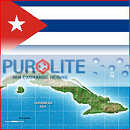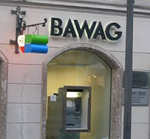 Sometimes the Cuba embargo can be good for U.S. business — at least for the business of U.S. law firms. In the latest turn of events in the Purolite saga, which involves trading by a Purolite foreign subsidiary with Cuba, a federal district court recently ruled that a U.S. attorney involved in the prosecution may have to testify in a malpractice suit against a law firm that allegedly advised the defendants that the illegal trades were proper. Brodie v. United States Department of Justice, 2007 WL 2972577 (E.D.Pa. 2007)
Sometimes the Cuba embargo can be good for U.S. business — at least for the business of U.S. law firms. In the latest turn of events in the Purolite saga, which involves trading by a Purolite foreign subsidiary with Cuba, a federal district court recently ruled that a U.S. attorney involved in the prosecution may have to testify in a malpractice suit against a law firm that allegedly advised the defendants that the illegal trades were proper. Brodie v. United States Department of Justice, 2007 WL 2972577 (E.D.Pa. 2007)
The saga of the prosecution of Stefan and Dan Brodie, executives of the Purolite Company, began in 2000 when the brothers were prosecuted for sales made by a Purolite subsidiary in the U.K. to Cuba. The Brodies were convicted by a jury. The trial court then set aside the verdict against Stefan, arguing that there was insufficient evidence that he was aware of the sales to Cuba. The trial court also found that Dan deserved a new trial because of inflammatory remarks made by the prosecution at the trial. Dan subsequently pleaded guilty and Stefan’s conviction was reinstated by the Third Circuit.
In 2004 the Brodies filed a lawsuit against Morgan, Lewis and Bockius for malpractice relating to advice the law firm allegedly gave the brothers concerning the sales by Purolite UK to Cuba. A partner at the law firm was alleged to have advised that the sales by Purolite UK to Cuba weren’t illegal as long as there was no U.S. participation in those sales. Additionally, according to the Brodies, the partner advised that stopping the Purolite UK sales to Cuba would violate British law and that, accordingly, the Foreign Sovereign Compulsion Doctrine would shield the brothers from prosecution.
Of course, if Morgan Lewis actually advised that a foreign subsidiary could trade with Cuba as long as there was no U.S. involvement, this would have been truly cringe-worthy advice. The Trading with the Enemy Act explicitly covers activities of foreign subsidiaries controlled by U.S. parents and makes trading with Cuba illegal even if no U.S. citizens are involved. The advice, if given, on the Foreign Sovereign Compulsion Doctrine would seem equally problematic if applied simply to foreign blocking statutes. Some U.S. courts have narrowly construed the doctrine to require that the foreign sovereign order specific acts by the defendant. Others have applied a balancing test which discounts the interest of the foreign sovereign in merely blocking U.S. laws.
But the District Court opinion at hand involves an interesting side issue in the lawsuit against the Morgan Lewis firm. During the original prosecution, Kristin Hayes, the wife of the managing partner of Morgan Lewis joined the prosecution team. Thereafter, it was alleged that the managing partner of Morgan Lewis provided confidential information about the Brodie brothers to his wife. When the trial court learned of these disclosure, Hayes was removed from the prosecution team, and two weeks before trial, Morgan Lewis withdrew from representing the Brodies.
The case at hand arises from the efforts of the Brodies to obtain a deposition of, and the trial testimony of, Kristin Hayes in the Brodies’ suit against Morgan Lewis. When the DOJ refused to make her available, the Brodies sued the DOJ in U.S. District Court. The district court ruled that the deposition was unnecessary because of the extensive testimony of Hayes during the disqualification hearing and because the DOJ had made a substantial number of relevant non-privileged documents available on the matter. As to the trial testimony, the court found that there may be reasons that would justify Hayes’s testimony at trial and scheduled further proceedings to resolve that issue.
So far it would appear that the Brodies have probably paid much more in legal fees over the Cuba sales than any profits that they might have made from those sales.

 Posted by
Posted by  Category:
Category: 

 The apparently never-ending fight over the trademark for
The apparently never-ending fight over the trademark for  . . . especially when the newspaper is
. . . especially when the newspaper is 



